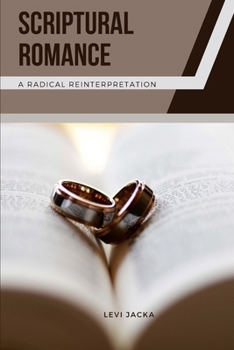Scriptural Romance: A Radical Reinterpretation
This study challenges the conventional understanding of romance by exploring a lesser-known genealogy-scriptural romance-rooted in the Judeo-Christian tradition. Unlike its classical counterpart, scriptural romance subverts idealization, exposing the failure of the heroic ideal to encapsulate the complexities of ordinary life. It unveils the entanglement of traditional power with magical meanings and portrays protagonists as simultaneous saints and sinners. The narrative emphasizes the provisional nature of human knowledge, the contingent quality of human experience, and the inherent distortion of cognition by desire.
Format:Paperback
Language:English
ISBN:7000321741
ISBN13:9787000321748
Release Date:November 2023
Publisher:Ali Shah Publisher
Length:280 Pages
Weight:0.83 lbs.
Dimensions:0.6" x 6.0" x 9.0"
Customer Reviews
0 rating





